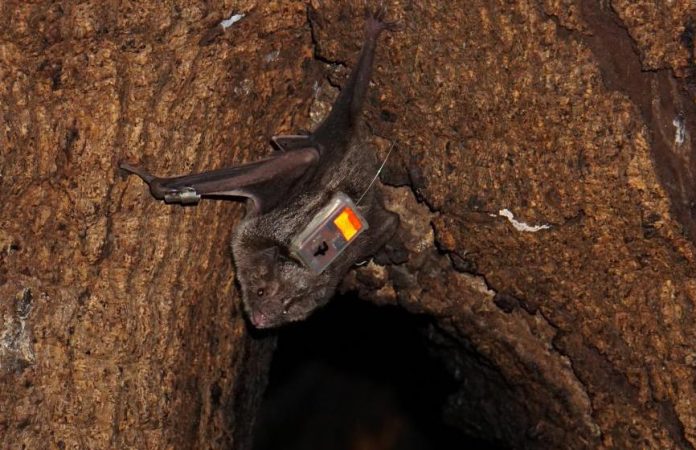Vampire bats (Desmodus rotundus) form enduring relationships much like humans and other social primates, according to new research.
The findings, published in the journal Current Biology, confirm that the bonds formed by this unique bat species aren’t just a by-product of captivity.
Researchers documented vampire bats developing social bonds during captivity that they maintained once they returned to the wild – a sign that the relationships weren’t borne only of convenience while they lived together in a cage.
The research, enabled by pioneering customized technology, offers a rare peek at wild vampire bats’ friendship-like behaviors and new insights into how social structures form. Vampire bat cooperation is rare in that individuals pay a cost to help others: They regurgitate food, their ingested blood meals, to feed non-relatives.
“What’s quite common in animal cooperation is doing something where we both benefit simultaneously: Let’s live together, let’s hunt together. I’m benefiting, you’re benefiting,” said the study’s co-lead author Gerald Carter, assistant professor of evolution, ecology and organismal biology at The Ohio State University.
“Here, there’s a kind of risk. If you have a cooperative trait that helps other individuals and costs you, natural selection should wipe that trait out unless the cooperative individual benefits somehow,” he said. “With vampire bat food sharing, there must be a benefit. It must be that by helping others I’m also helping myself. We think the bats have long-term reciprocal relationships: You help me because I help you. But it’s not yet clear how that works.”
Carter and his colleagues at the Smithsonian Tropical Research Institute (STRI), where he is a research associate, housed female vampire bats and their captive-born offspring in a closed laboratory colony for 22 months, creating conditions that prompted social bonding behaviors of food sharing and grooming. They returned the bats to their natural outdoor home roost, a hollow tree, equipped with sensors that recorded their proximity to each other every two seconds, and placed those same sensors on a control group of wild bats.
Over eight days, the researchers collected enough data from the sensors to show that relationships between the previously captive bats persisted when they returned to the wild. From an evolutionary standpoint, the study suggests that whether bats maintain a relationship can be attributed in part to their shared history.
“It’s kind of analogous to being friends in high school. After you graduate, and you’re released out of this structured environment, do you continue to stay in touch with those people, or do you lose touch with them? It depends on personality types and the kinds of experiences you shared. That’s essentially what we were after with this study,” Carter said.















